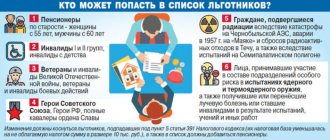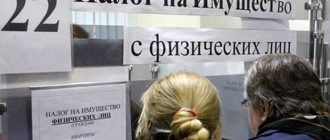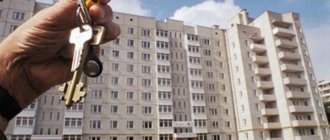Providing preferences to people with disabilities
A citizen who is not able to provide for himself on his own has the right to use the concessions provided by the authorities. Benefits are established for different areas of life. For example, in the field of use of housing and communal services.
The amount of preference is 50% of the total cost of services.
To use benefits, a person must document his status. The benefit can be used not only by disabled people of category 3, but also by members of their families.
Relief applies to the following housing assets:
- municipal;
- public;
- federal.
If the housing space of a disabled citizen is not included in one of the funds, government agencies will still compensate part of the cost of services in the housing and communal services sector.
Social standards do not limit the maximum amount of discounts for people with disabilities. The reason is that the discount cannot be calculated based on consumption standards.
Benefit options
The nuances regarding the preferences granted to citizens with disabilities are spelled out in Federal Law No. 181 of 1995 “On the social protection of people with disabilities.”
In this case, the following options can be used:
- people who are officially recognized as category 3 disabled can receive a subsidy for utility bills. The amount is formed based on the size of the entire residential premises, as well as the amount of resources consumed by a particular person;
- benefits for the services of a housing and communal organization are calculated only taking into account the share of the apartment owned by a person with a disability. The calculated indicators and the number of citizens living in the premises are taken into account;
- the preference is calculated for several disabled people if they live in the same apartment.
If central heating is not installed in the premises, the amount of the subsidy will vary depending on how much the fuel used to heat the home costs. In this case, the preference must be calculated so that the share occupied by a category 3 disabled person is not taken into account.
Procedure for applying for exemptions
Benefits for disabled people of group 3 for housing and communal services are provided on an application basis. It is stipulated that a citizen is required to visit the authorized body, after which he writes an application and receives relief.
The table shows the authorities where a disabled person can contact depending on the type of benefit received:
| Type of benefit | Organ |
| Social | The appeal is made to the Social Security Administration or the Pension Authority |
| Tax | Fiscal authorities at the citizen’s place of residence |
In the case of preferences for payment of housing and communal services, you need to contact the social protection department. You should visit this authority at the place of residence of a citizen who has the status of a disabled person.
Benefits can be provided in the form of subsidies or preferences. In the first case, it is assumed that the citizen initially pays for services in full, after which he submits an application for reimbursement of part of this amount.
In a situation with benefits, the amount is calculated taking into account the applicable discount. Which form will be used by the citizen must be indicated in the application submitted to the authorized body.
Documents for receiving benefits
Housing and communal services benefits for disabled people of group 3 in 2021 involve the collection of certain documentation.
The list includes:
- an application drawn up by a disabled citizen of group 3;
- a document by which the identity of the disabled person is verified;
- SNILS;
- pensioner's ID;
- a certificate reflecting the details of the bank account where the funds will be transferred;
- an act confirming the right of ownership of the apartment;
- a certificate indicating the number of members in the citizen’s family.
In addition, you will need to take a certificate issued in form 2-NDFL. The duration of use of the preference is determined depending on how often the citizen must undergo the re-examination process. Most often, this process is installed once a year.
In this case, you need to constantly re-register the benefit.
How to receive compensation for paying for housing and communal services in the Moscow region
In the Moscow region, a number of categories of citizens have the right to monthly monetary compensation for the costs of paying for housing and communal services. Who in the Moscow region can receive this benefit and what documents will be needed to apply for it, read the material on the mosreg.ru portal.
How to join engineering networks online in the Moscow region>>
Compensation amount
housing utility receipt
Source: Main Directorate of the State Housing Inspectorate of the Moscow Region
Compensation for payment of housing and communal services is provided to citizens if they have the appropriate preferential status. In this case, the amount of compensation may vary depending on the category of benefit and be 50% or 100% of the cost of paying for housing and communal services.
Who can receive
WWII veteran
Source: Photobank of the Moscow region
The list of categories of citizens who can receive compensation is very extensive. It is important that all of them must have registration at their place of residence in the Moscow region.
The following may receive compensation for payment for housing, contributions for major repairs and utilities:
— disabled people and participants of the Great Patriotic War;
- disabled combat veterans;
- military personnel who became disabled while performing their duties;
— awarded the badge “Resident of besieged Leningrad”;
— former minor prisoners of concentration camps;
— family members of those killed in the Great Patriotic War;
— disabled people, families with disabled children, HIV-infected minors;
— persons exposed to radiation, liquidators of the Chernobyl disaster, family members of the deceased liquidator, persons who received radiation sickness as a result of the Chernobyl disaster, disabled people as a result of the Chernobyl disaster, persons exposed to radiation at the Chernobyl nuclear power plant;
- veterans of labor and military service, upon reaching retirement age;
- home front workers;
— rehabilitated persons, as well as those recognized as victims of political repression;
- residents of rural areas;
— teachers and other workers of rural educational institutions.
Compensation for payment for housing and contributions for major repairs is assigned:
— combat veterans;
- single non-working pensioners.
Payment of contributions for major repairs is compensated by:
— 50% — to owners of residential premises over 70 years old;
— 100% — homeowners over 80 years of age.
Compensation for utility bills is due:
- large families raising three or more minor children until they reach the age of 18 (full-time students up to 23 years old);
— honorary donors;
- awarded the medal “For the Defense of Moscow”, the title “Honorary Citizen of the Moscow Region”.
Improvement of courtyards in the Moscow region: repair of entrances, elimination of potholes and new containers>>
Documentation
light, light bulb, blackout, candle, Moscow
Source: Photobank of the Moscow region, Anastasia Osipova
In order to receive compensation, you will need the following documents:
• application for compensation of expenses;
• passport;
• an extract from the house register (a document confirming the number of citizens registered in the residential premises);
• an agreement with a credit institution to open a bank account in the name of the applicant or a bank card in the name of the applicant;
• document confirming ownership of residential premises;
• information about citizenship;
• information confirming the place of residence or stay in the Moscow region;
• documents confirming the applicant's right to benefits.
Additionally, depending on the preferential category of the citizen, you will need:
• employment history;
• pensioner's ID;
• certificate of pension amount issued by the Pension Fund of the Russian Federation;
• children's birth certificate;
• order of the social security authority to establish guardianship and appoint a guardian;
• a certificate from an educational institution confirming full-time study. Available annually in September.
How to apply for a survivor's pension in the Moscow region>>
Where to go
MFC
Source: Press service of the Governor of the Moscow region
In order to apply for compensation for expenses for living quarters and utilities, you need to contact the Multifunctional Center of the Moscow Region or come with a set of documents to the territorial department of social protection.
How to get a social tax deduction in the Moscow region>>
Magnitude of preference
What benefit a person will receive can be calculated independently.
To do this you should do the following:
- it is required to find out the volume of services consumed by a citizen for a specific period;
- record readings from metering devices;
- calculate the amount depending on the established standards. This calculation method is used if the premises do not have equipment for recording consumption readings.
For example, if a citizen must pay 6,000 rubles for a month, then when using a 50% discount, he pays 3,000 rubles on a receipt.
The nuances of using benefits depending on the category of citizens
There are several categories of disabled people of group 3, each of which has certain characteristics. If a person becomes disabled as a child or immediately after birth, he can use certain types of benefits.
These include:
- exemption from property taxes;
- no need to pay when creating your own business;
- failure to make payment when receiving a warrant for an apartment;
- there is no requirement to pay half of the amount accrued as a fee for services in the housing and communal services sector.
Providing such relief is aimed at ensuring that the citizen can lead a full life. Also, special features are inherent for citizens who have lost their ability to work during military service.
Discounts for such a person are provided in the housing and communal services sector (in the amount of half of the accrued amount). A complete exemption from the need to pay for obtaining documentation is also established.
In addition, the benefit is provided in the form of a 50% discount on the purchase of a travel document.
Important! Citizens who have received preferential status due to work do not have any special features compared to other categories of disabled people. Regional authorities have the authority to establish discounts for people with disabilities. In this case, the amount cannot be less than that determined at the federal level.
Reasons for refusal to apply for benefits
In some situations, the authorized body refuses to provide a preference to a disabled person. When such a decision is unfounded, a person may file a complaint with the court or the prosecutor's office.
The reason for the refusal is as follows:
- insufficient documentation;
- providing false information when receiving benefits;
- a citizen does not have the right to receive a preference;
- re-examination has not been completed.
If the refusal is based on the listed reasons, it is impossible to appeal it, since it is legal.
Thus, preferences for citizens with disabilities are enshrined at the legislative level. The social protection authority is responsible for issuing relief.
VS: Debt for housing and communal services cannot be a basis for refusing to compensate a disabled person for the costs of paying them
The Supreme Court, in Ruling No. 14-KG21-13-K1 dated July 26, explained to lower courts that the mere fact of debt cannot be a basis for refusing a disabled person compensation for housing and communal services expenses.
Alexander Borzakov is disabled and therefore has the right to receive monetary compensation for expenses for housing and utilities. He had been receiving compensation since January 2009. In November 2011, payment was suspended due to arrears in payment for a number of utilities. At the same time, the man was explained that in order to resume payment of compensation, he should pay off the existing debt and submit paid receipts or enter into an agreement on partial repayment of the debt.
On July 10, 2012 and February 17, 2021, the Leninsky District Court of Voronezh refused to satisfy the claims of Alexander Borzakov against the Department of Social Protection of the Leninsky District of Voronezh for an obligation to resume payment of compensation. Then the disabled person contacted the prosecutor's office, but they did not find any violations. At the same time, the prosecutor’s office, on the contrary, indicated the presence of an overpayment of 60 thousand rubles, which was moved to the line “maintenance and repair of housing.” The department also indicated that the applicant can resolve the issue of debt for other services in pre-trial or judicial proceedings.
It was not possible to resolve the problem pre-trial, but it turned out that now there is an overpayment in the category “payment for residential premises” in the amount of about 48 thousand rubles. At the same time, Alexander Borzakov needs to pay the debt for major repairs, heating, cold and hot water, drainage, electricity, hot water heating and garbage removal.
Considering that there was no debt, the man filed a lawsuit against the Department of Social Protection of the Population of the Leninsky District of Voronezh and asked the court to impose on the Department the obligation to resume payment, taking into account indexation, from November 2011 and to recover compensation for moral damage in the amount of 50 thousand rubles.
The first instance considered that the existence of arrears in payment of housing and communal services was not refuted by Alexander Borzakov, measures to repay the debt, including to resolve the issue with the manager), were not taken, the amount of accrued and unpaid amounts for payment of housing and communal services was not disputed by the plaintiff. Rejecting Alexander Borzakov's arguments about his overpayment, the court noted that since 2012, the plaintiff has been making unauthorized payments in an improper manner and to an improper recipient, as a result of which he has overpaid. In the opinion of the first instance, this circumstance cannot be recognized as a valid reason for the occurrence of debt for payment of other housing and communal services.
The Court of Appeal agreed with the conclusions of the first instance, additionally pointing out that funds transferred in excess do not pay off debts to utility providers; the issue of redistribution of this amount can be resolved within the framework of the legal relations between Alexander Borzakov and JSC "Management Company of the Leninsky District" . The First Cassation Court of General Jurisdiction found the courts' conclusions correct.







